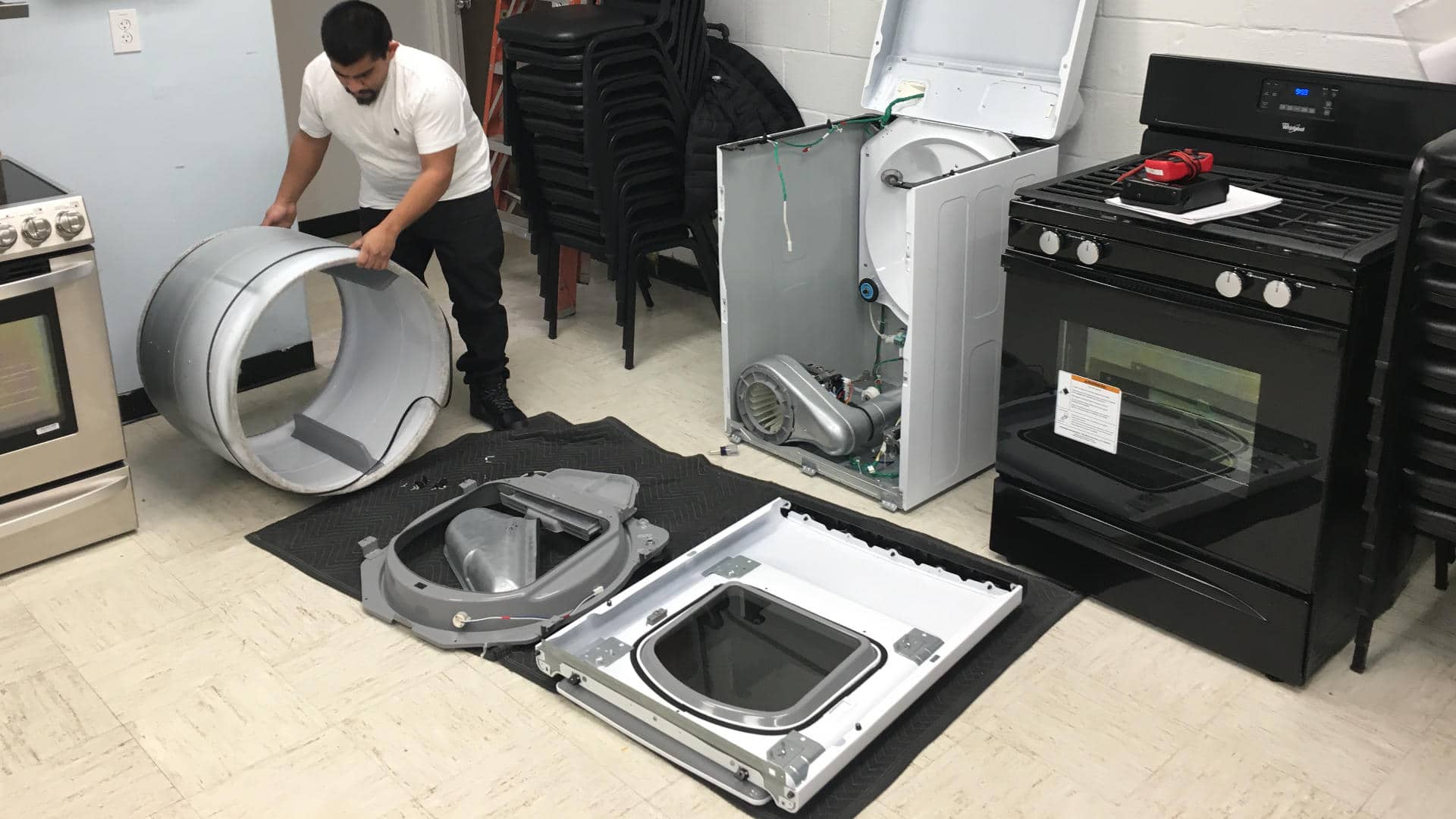Choosing the Right Laundry Detergent: Protect Your Washer
Washing machines are vital appliances in our homes, but using the wrong laundry detergent can significantly hinder their performance and longevity. Choosing the right detergent is not just about ensuring clothes come out clean; it's also crucial for maintaining the machine's health. Incorrect detergent choices can lead to issues like excessive suds, residue buildup, and undue stress on machine components. This guide will explore the importance of detergent selection, including how to identify the right type for your machine, the consequences of improper use, and expert advice to optimize your washing machine's efficiency. Whether you're dealing with hard water or looking for eco-friendly options, understanding these principles will help keep your machine running smoothly.
The Importance of Detergent Choice
Choosing the right laundry detergent is crucial for both the efficiency and longevity of your washing machine. Detergents specifically designed for washing machines help prevent the build-up of residues that can clog and corrode vital components, ensuring your machine runs smoothly. Moreover, using the incorrect type of detergent, such as hand-washing soap or excessive amounts of regular detergent, can lead to excessive foam and suds. This not only affects the washing cycle by reducing the cleaning power but also puts additional strain on the motor and drainage systems, potentially leading to costly repairs or replacements.
Furthermore, the right detergent plays a significant role in energy efficiency. Machines can operate more effectively with the correct soap, requiring less water and energy to remove suds and residue. Therefore, carefully selecting a detergent that complements your washing machine’s design and its manufacturer’s recommendations not only preserves the condition of your machine but also optimizes its performance, saving energy and repair costs in the long run.
Consequences of Using Incorrect Detergent
Using the incorrect detergent in your washing machine can have a range of negative consequences that extend beyond inadequate cleaning results. Firstly, inappropriate detergents can create an excessive amount of suds, which can cause the machine to overflow or work harder to rinse the clothes, thereby stressing the motor and other mechanical components. This overworking of the machine's systems often leads to premature wear and tear, potentially shortening the lifespan of the appliance.
Secondly, the wrong detergent might not dissolve properly, leading to the accumulation of residues inside the drum and on the heating elements. Such build-up can obstruct the machine's filters and hoses, restricting water flow and drainage, and possibly resulting in blockages that necessitate professional cleaning or repairs. These residues can also leave fabrics looking dull and feeling rough, and can emit unpleasant odors that linger both in the machine and on your clothes.
Additionally, many modern washing machines are designed to be used with high-efficiency (HE) detergents that produce fewer suds and are more soluble. Using a non-HE detergent in an HE machine can not only impair the machine's efficiency but also increase water and energy consumption due to longer or more intense wash cycles needed to manage the excess suds.
Ultimately, the misuse of detergent can lead to increased operational costs, reduced efficiency, and the potential for costly repairs—all of which underscore the importance of selecting the appropriate product for your specific washing machine model.
How to Select the Right Laundry Detergent?
Selecting the right laundry detergent is essential for optimal performance of your washing machine and to maintain the quality of your laundry. Here’s how to choose the most suitable detergent:
Understand Detergent Types: There are various types of detergents available, including liquids, powders, and pods. Liquid detergents are generally more versatile and effective on oily stains, while powder detergents are ideal for general wash loads and are usually more cost-effective. Pods offer convenience and precise dosing but can be more expensive.
Check Machine Compatibility: Always check whether a detergent is suitable for your type of washing machine. High-efficiency (HE) washers require HE detergents that produce less suds and are specifically formulated to perform well in low water volumes.
Consider Water Hardness: The hardness of your water can affect detergent performance. If you have hard water, look for detergents that are designed to combat this as they help to prevent mineral buildup in your machine and on your clothes.
Evaluate Environmental and Health Impact: If you are environmentally conscious or have sensitive skin, opt for detergents that are free from fragrances, dyes, and harsh chemicals. These detergents are often biodegradable and better for both the environment and your health.
Read Reviews and Recommendations: Research and read reviews to see how different detergents perform. Recommendations from manufacturers or professional reviews can guide you to the best choices for your needs.
By taking into account these factors, you can select a laundry detergent that not only cleans effectively but also preserves the functionality and longevity of your washing machine.
Impacts of Improper Detergent Use on the Machine
Using the wrong type of detergent in your washing machine can lead to a variety of mechanical and functional issues that might affect both the machine and the cleanliness of your laundry. Here are some impacts of improper detergent use:
Excessive Suds: Non-high efficiency (HE) detergents in HE washers create too many suds, which can lead to overflows and longer rinse cycles that put extra strain on the machine's pump and motor. This can prematurely wear out these components and lead to costly repairs.
Residue Buildup: Using too much detergent or the wrong type can leave behind residues in the drum and internal components of the machine. Over time, this residue can harden, leading to clogged pipes, a decrease in washing efficiency, and the potential for mold and mildew growth.
Component Damage: Detergents not designed for specific types of washers can corrode sensitive components. For example, standard detergents can be too abrasive for machines with stainless steel drums or specific types of seals and gaskets, causing them to degrade faster.
Inefficiency and Increased Costs: When detergents do not dissolve or work effectively, they require the machine to operate longer, use more water, or run hotter cycles, significantly increasing energy and water usage and thereby raising utility bills.
Selecting the correct detergent is not only about achieving clean laundry but also about maintaining the efficiency and lifespan of your washing machine. By ensuring you use the right detergent, you help prevent these negative outcomes and keep your appliance in top working condition.
Expert Opinions and Advice
When seeking the best practices for detergent use in washing machines, expert opinions and advice can be invaluable for maintaining your appliance's efficiency and longevity. Here are some insights gathered from industry experts:
Consult the Manufacturer’s Recommendations: Always start with your washing machine's manual. Manufacturers often specify the types of detergents that work best with their machines, including recommended amounts. Following these guidelines helps ensure optimal performance and prevents damage.
Use High-Efficiency (HE) Detergents for HE Washers: Experts stress the importance of using HE detergents in HE machines. These detergents are designed to produce fewer suds and dissolve more effectively in low water volumes, which is crucial for preventing mechanical issues and ensuring effective cleaning.
Measure Correctly: Overloading detergent can lead to residue buildup and inefficiencies. Experts recommend using the minimum amount of detergent necessary for the load, which often means using less than you might think. Detergent caps and scoops can guide correct measurements.
Adapt to Your Water Type: If you have hard water, consider detergents formulated for it. These detergents contain water softeners that help prevent mineral buildup in your machine.
Seek Eco-friendly Options: For those concerned about environmental impact, experts suggest eco-friendly detergents. These options are not only better for the planet but also often gentler on your machine and clothes.
By following these expert tips, you can enhance your washing machine’s performance and durability, ensuring that it runs smoothly while also being mindful of your environmental footprint.






